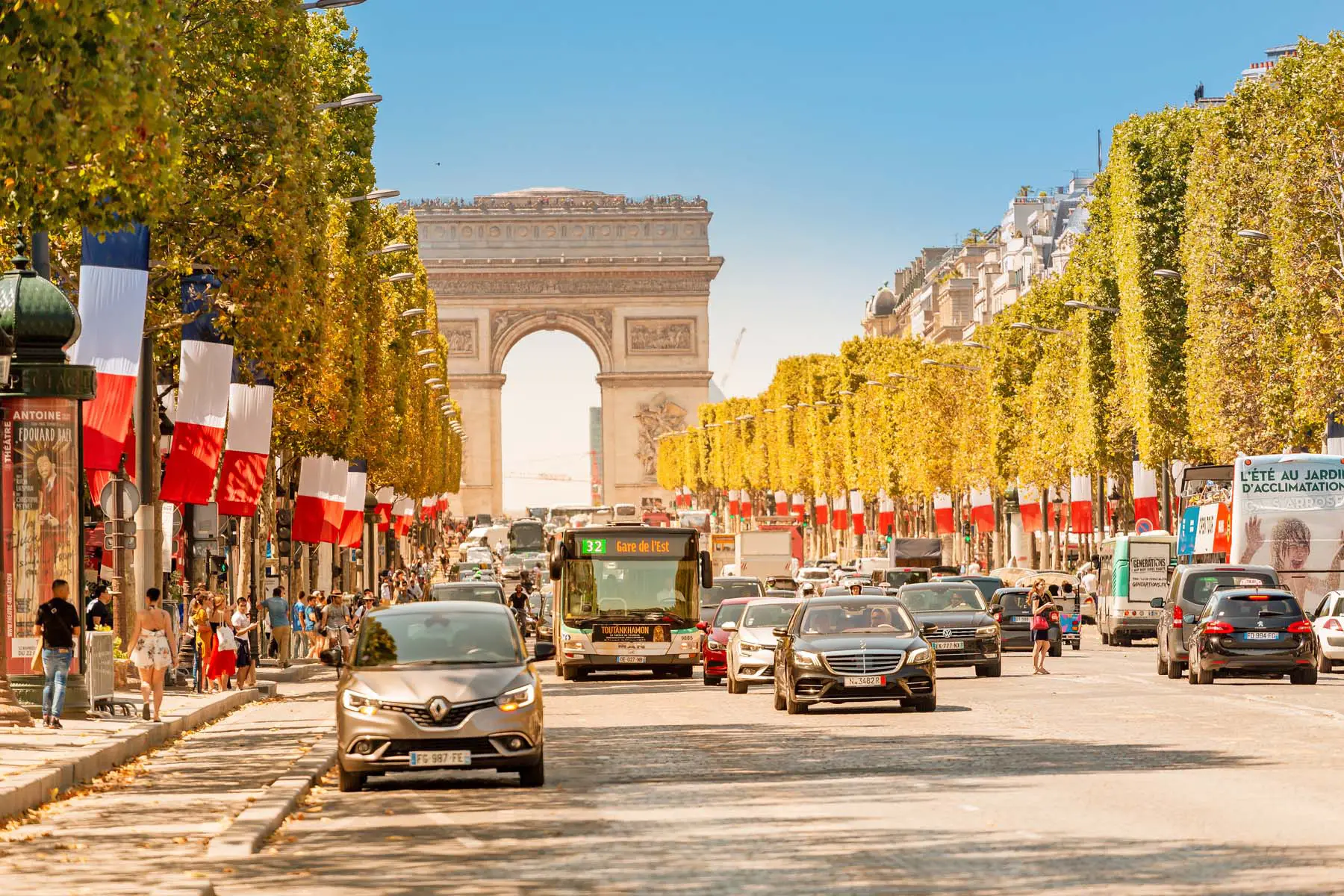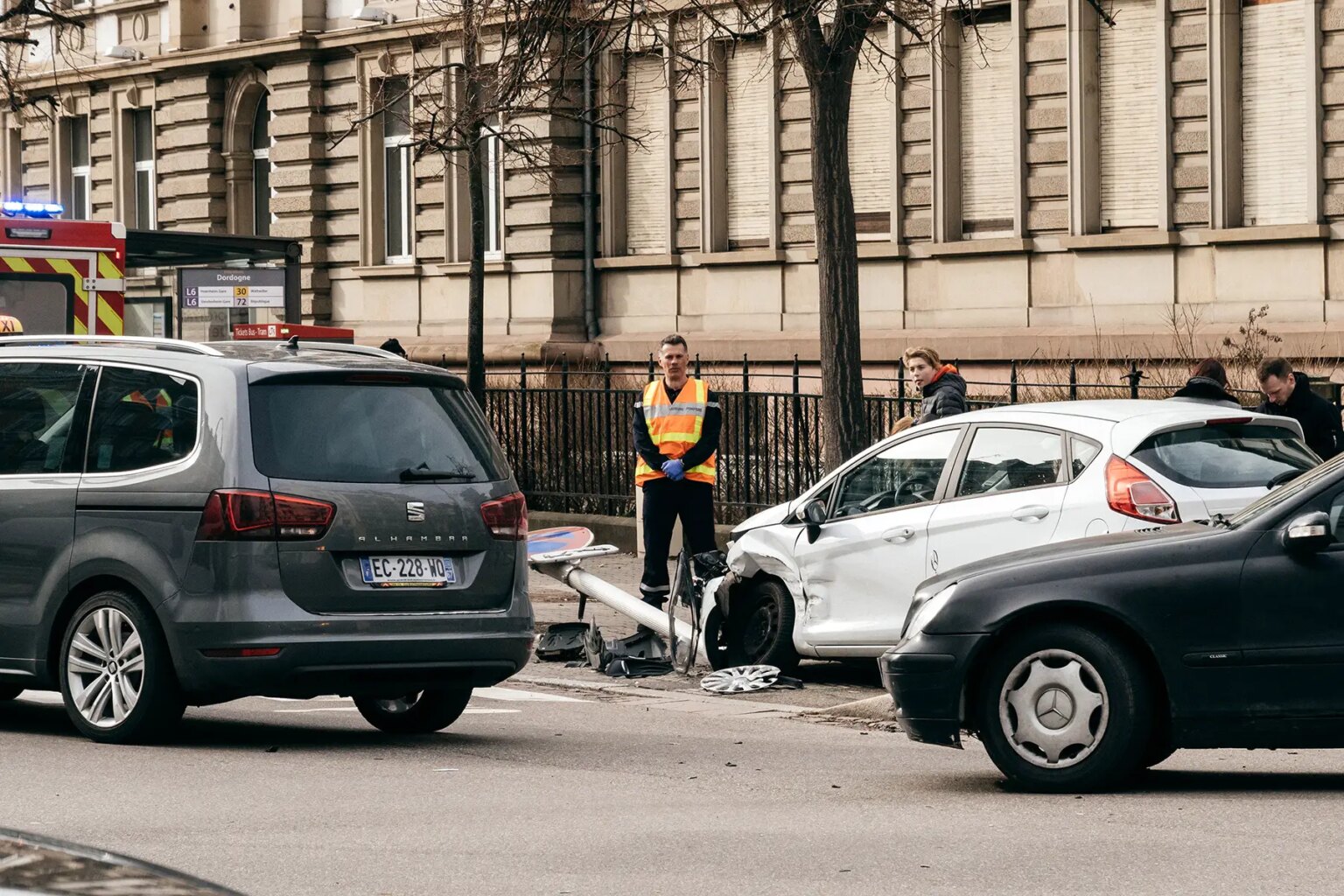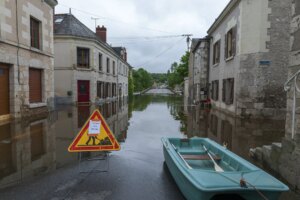Car insurance is one of the biggest forms of insurance cover in France. If you’re planning on driving in France, you’ll need a minimum level of liability insurance as a legal requirement if you have a vehicle on the road.
To help you understand car insurance in France, this guide will discuss the key issues, including:
- An overview of car insurance in France
- Types of car insurance in France
- Additional forms of car insurance in France
- Car insurance bonuses and penalties in France
- Car insurance companies in France
- How to choose car insurance in France
- Applying for car insurance in France
- Making a car insurance claim in France
- Canceling a contract and changing provider
- Making a complaint about a French car insurance company
- Roadside assistance in France
- Useful resources
Fab French Insurance
Make insurance fabulously easy with Fab French Insurance. This insurance brokerage has 10+ years of experience providing English-language support to internationals in France. Find affordable, tailored solutions for medical insurance for visas, mutuelles, and home and car insurance with Fab French Insurance.
An overview of car insurance in France
You must insure all motor vehicles in France to at least third party liability. You will need to do this even for vehicles that are not in use, unless all four wheels are removed. Failure to insure a vehicle can lead to fines of up to €3,750.
Car insurance in France covers the vehicle rather than the driver, meaning that other licensed drivers can driver your car if the policy allows it.
Because insurance is applied to the vehicle, every car in France needs to be separately insured. However, many insurance companies offer discounted rates for a second car or multiple car insurance.

According to 2016 data, France has the second-largest car insurance market in Europe behind the UK. There are around 90 companies providing auto insurance in the country. The Autorite de Controle Prudentiel et de Resolution (ACPR), which is an arm of the Banque de France, regulates the French insurance market.
You can find out more information in our guides to insurance in France and French driving licenses.
Can you use car insurance from another country in France?
Non-residents can drive foreign cars covered by insurance from their home country, as long as the insurance meets the French minimum requirements. You need a green card that shows that you have sufficient coverage for your vehicle.
If you are a French resident, you will need to take out car insurance in France and make sure that your car has a French number plate. Citizens from EU countries can continue to use insurance from their home countries.
Types of car insurance in France
There are three main types of car insurance in France: third-party, third-party fire and theft, and fully comprehensive.
Third-party liability (tiers collision or responsabilite civile)
This is the minimum amount of insurance that you need under French law. It insures against damage and injury to all third parties in incidents where you are at fault. This includes passengers in your car.
Third-party insurance won’t cover any of your own costs, for example, the cost of repairing any damage to your own vehicle. It is a good type of insurance to have if you drive an inexpensive car or only drive occasionally.
Third-party, fire, and theft
This is also known as third-party plus. This provides standard third party liability coverage plus it will also cover costs to your own car caused by accidental damage, natural disasters, or attacks. These types of policies usually cover:
- Fire
- Storm damage
- Windshield damage caused by debris or a collision with an animal
- Theft
- Vandalism
Policies vary between companies, so check your individual policy for any exclusions before signing.
Comprehensive (tous risques)
This covers all risks including damage to your car caused by an accident that was your fault. Also known as the ‘all-risk’ policy, this is a good choice of coverage if you drive a new or expensive car, are a frequent driver or have any risks associated with your driving.
Although tous risques policies are comprehensive, most come with exclusions so check what these are before signing. Usually, they are related to intentional damage or incidents that occur when the vehicle is illegally parked.
Car insurance costs
As with most countries, car insurance costs in France can differ greatly and will depend on various factors including:
- Vehicle value
- What you use the vehicle for (premiums are often higher if you use the car for work)
- How often you drive (many companies offer per-km or pay-as-you-drive packages
- Coverage type (tous risques is the most expensive and tiers collision is the cheapest)
- Driver age
- Driver profile (e.g., accident history)
- Location (average premiums vary across different French regions)
You can reduce your premiums by increasing your excess. This is the amount you pay towards any claim. Most insurance companies apply a compulsory access, for example €100. This means you will pay the first €100 on any claim and the company will pay the rest.
Most policies allow you to increase your excess in return for a discount on your monthly or annual premiums. Some tous risques policies are available without excess.
The average car insurance annual premium in France in 2016 was around €400, making it the fifth-highest in the EU and above the overall EU average. Tous risques premiums are higher, usually in the region of €600–900 annually.
Additional forms of car insurance in France
There are a number of optional forms of insurance you can take out for your car. Comprehensive policies often include these, but check the small print beforehand if you’re not sure. Additional car insurance in France includes:
- Medical insurance – covers the costs of medical treatment in the event of an accident or, in the case of serious accidents, death or disability costs;
- Legal insurance – covers the costs of legal representation and advice relating to any incidents;
- Breakdown assistance – covers repair and vehicle towing costs in the event of a roadside breakdown;
- Equipment insurance – covers the costs of any equipment and possessions in the car up to a certain amount, such as luggage or a car stereo;
- No-claims protection – this protects your no-claims bonus should you be involved in an accident.
Car insurance bonuses and penalties in France
France operates the no-claims bonus system used in many other countries. No-claims deductions accrue at the rate of 5% a year and it takes 13 years of no-fault driving to obtain a full 50% no-claims bonus.
Because of this, some drivers choose to pay directly for damage they cause so that they can avoid increased premiums. You need to think carefully before doing this as you waive your right to make an insurance claim later down the line. If the repair costs are more than expected, you can end up out of pocket.
Another option is to pay for additional no-claims protection on your insurance policy.

Most companies will allow you to transfer no-claims bonuses earned through another insurer, as long as you can provide proof. Insurers are less likely to allow you to transfer no-claims periods from an overseas insurer, but some may be willing to offer this so it’s worth trying to negotiate.
While you can reduce insurance costs through periods without claiming, insurers can increase premiums dramatically if they consider you to be a high-risk driver. This may happen if you:
- have been involved in an incident where you were at fault;
- get points on your French driver’s license because of violations such as speeding or drink-driving;
- are a young or inexperienced driver.
Car insurance companies in France
Overall, there are around 90 car insurance companies in France. These include:
- Allianz Auto
- AXA
- Clements
- Credit Mutuel
- EuroAssurance
- Groupama – Auto
- MAAF
- MACIF
- Matmut
Groupama
Check out Groupama auto insurance for a reliable companion on the road. With comprehensive coverage, competitive rates, and excellent customer service, they ensure peace of mind while driving. From accidents to theft, their policies protect you and your vehicle. Count on Groupama for trusted auto insurance that puts your safety first.
If you want to compare car insurance policies, you can use comparison websites such as:
Meanwhile, if you need assistance with your insurance, it can be helpful to contact a broker who can guide you through your options. Some, like Fab French Insurance, specialize in English-language support to help you find tailored coverage.
How to choose car insurance in France
You should shop around when looking for car insurance in France and make sure you find the best deal that is suited to your circumstances. Here are a few things you may want to consider besides premium costs:
- Policy coverage – what is included and what isn’t? Check for exclusions and read the terms & conditions. If anything you need is not covered, what is the cost of adding this on?;
- Excess options – how much is the excess and how much can you reduce your premiums by increasing it voluntarily?;
- No-claims bonus – what is offered and can you transfer bonuses earned elsewhere?;
- Claims process – how easy is it to make a claim? Will you have to pay upfront and get reimbursed or will the insurer take care of payments directly?;
- Company reputation – check company ratings and customer reviews to see what feedback has been given;
- Roadside assistance – does the company offer a good breakdown assistance policy?
Applying for car insurance in France
Each French insurance company will have its own applications process, so check beforehand what you’ll need. Most companies now offer online sign-ups where you can set up your policy by filling in the application form and providing the necessary documentation online.
You will usually need to provide the following:
- car registration certificate;
- valid French driving license;
- driver history report;
- personal details of the policyholder, such as age and address.
Within a few days, you should receive:
- your insurance policy, called the attestation d’assurance, which proves the vehicle is insured. You should keep a copy of this in the car;
- insurance certificate, called the certificat d’assurance. This is a green slip that should be attached to your attestation d’assurance. You must fix this to your windscreen so that it is clearly visible;
- EU accident form, called le constat amiable in French, which you will need to complete in the event of an accident.
Making a car insurance claim in France
If you need to make a car insurance claim in France, you should do the following:
- complete both your insurance claim form and your EU accident statement form – making sure that both/all parties sign the form in the event of an accident – and send it to your insurer within 5 days;
- take the details of any other parties involved in the accident, e.g. names, addresses, license plate numbers;
- take photos and get statements from any witnesses present at the scene of an accident;
- contact the police and emergency medical services in the event of a serious accident.
You can submit any photos and witness statements to support your insurance claim.
In the event of a theft, you should report it immediately to the police and file an insurance claim within two days (if you have the necessary coverage). Insurance companies in France will wait 30 days before paying out on claims relating to stolen cars.
Canceling a contract and changing provider
Canceling an insurance contract in France is generally more difficult than in many other European countries. However, this has become easier in recent years. Because car insurance in France is compulsory, policies will auto-renew after the initial 12 months and will do this every year unless you cancel.
When you sign a contract, you have an initial 14-day period where you can cancel without being penalized. After this, you can only cancel within the final two months of the first year, unless the reasons are sale of the vehicle or death of the policyholder.
It is possible to cancel a contract within the first year. However, you can only do so no earlier than two months and no later than 15 days before the contract expiry date. After the first 12 months have elapsed, you can cancel at any time. The insurer will end the contract one month after receiving notice of cancellation and will refund any payments made beyond this period.
You will need to send a letter of cancellation to your insurer. Many companies nowadays allow this to be done by email, otherwise, you can send a letter in the post.
You are free to change insurance providers in France, so it’s wise to shop around each year. Some companies may offer to take care of the administration if you are signing over to them. If not, just cancel your old policy and sign up with your new provider. Make sure that you don’t leave a coverage gap because you’ll be breaking the law!
Making a complaint about a French car insurance company
If you want to make a complaint about a French insurance company, for example, if you are unhappy with a product or feel you have been treated unfairly, you should first try to resolve the issue through the complaints department of the insurance company.
Your insurance company should have their own complaints process which should be detailed on their website or in documentation given to you. You will need to follow this procedure and give the company 15 days to respond.
If you don’t receive a satisfactory reply, you can complain to La Mediation de l’assurance which is the independent body that assesses insurance complaints in France. This can be done online or by mail.
Roadside assistance in France
France doesn’t have an equivalent of the AA or RAC, however many insurance companies provide breakdown insurance. Some comprehensive policies may include this, otherwise, you’ll need to purchase it as additional coverage.
Good policies should cover towing and emergency repair costs, replacement transport, and possibly repatriation costs if you drive abroad. However, the breakdown insurance coverage with some French companies is limited and might only cover the costs of towing your car to the nearest garage.
You can use breakdown coverage from another country if possible, for example, the RAC or Green Flag if you’re from the UK. Another option is to take out a European-wide policy that covers you across EU countries.
If your car breaks down on the motorway in France, you will need to call the ASFA. This is a 24-hour motorway breakdown service that you can reach by calling the 112 emergency number.
The ASFA will tow you to a safe area where you can meet your breakdown provider. Costs for this depend on the service but vary between €125–235. Check with your insurance provider that they will cover this.
Useful resources
- Autorite de Controle Prudentiel et de Resolution (ACPR) – regulator of insurance companies in France
- La Mediation de l’assurance – mediator for complaints about French insurance companies




